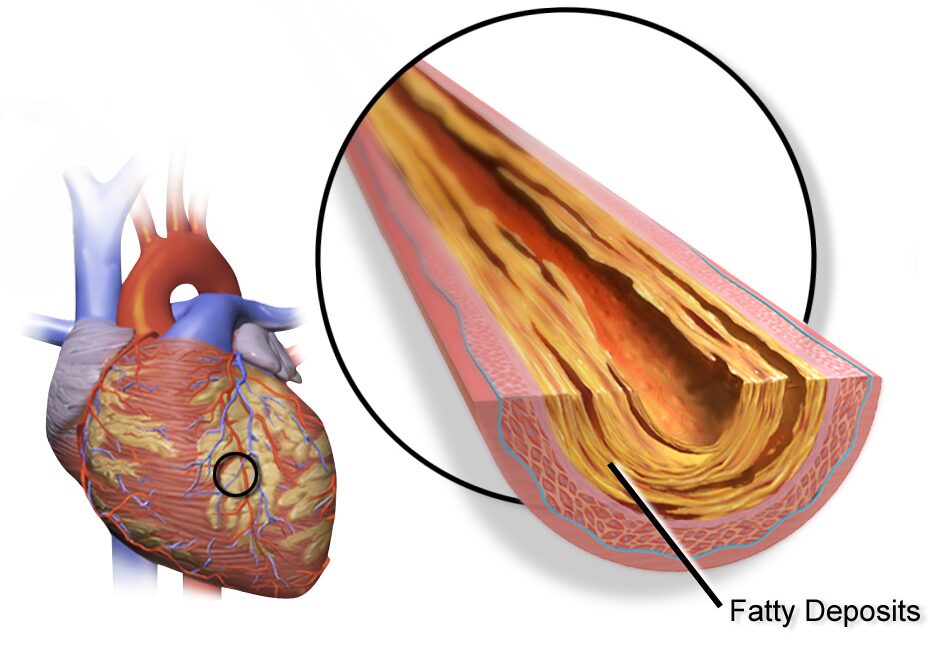Women and Heart Disease
What is the leading cause of death of women over the age of 40?
The leading cause of death among women over the age of 40 varies depending on the region and specific population, but globally, cardiovascular disease is often the leading cause of death in this age group. Every year, more than 400,000 U.S. women die of heart disease. This translates to approximately one death every minute. Other common causes of death in women over 40 include cancer (particularly breast cancer), respiratory diseases, and diabetes. It’s important for women to prioritize regular health check-ups and screenings to detect and manage these conditions early.
What menopausal changes lead to heart disease?
Menopause is a natural stage in a woman’s life when menstruation stops, typically occurring in the late 40s or early 50s. During menopause, the body undergoes hormonal changes, including a decrease in estrogen levels, which can have an impact on cardiovascular health. Some menopausal changes that can lead to an increased risk of heart disease include:
- Changes in lipid profile: After menopause, women often experience changes in their lipid profile, including an increase in LDL cholesterol (the “bad” cholesterol) and a decrease in HDL cholesterol (the “good” cholesterol). These changes can increase the risk of atherosclerosis (hardening and narrowing of the arteries) and heart disease.
- Increased blood pressure: Menopause is associated with an increase in blood pressure, which is a major risk factor for heart disease.
- Changes in blood vessel function: Estrogen has a protective effect on blood vessels, helping to keep them flexible and healthy. After menopause, the loss of estrogen can lead to changes in blood vessel function, including reduced dilation (widening) of the blood vessels, which can contribute to hypertension and heart disease.
- Increase in abdominal fat: During menopause, women often experience a redistribution of body fat, with more fat accumulating around the abdomen. This type of fat distribution is associated with an increased risk of heart disease.
- Changes in insulin sensitivity: Menopause is also associated with changes in insulin sensitivity, which can increase the risk of developing diabetes, a major risk factor for heart disease.
- Inflammation: Menopause is associated with an increase in inflammatory markers in the body, which can contribute to the development of atherosclerosis and heart disease.
It’s important for women going through menopause to be aware of these potential changes and to take steps to reduce their risk of heart disease. This may include adopting a heart-healthy lifestyle, such as eating a healthy diet, exercising regularly, maintaining a healthy weight, not smoking, and managing stress. Regular check-ups with a healthcare provider can also help monitor and manage any risk factors for heart disease.
How does a postmenopausal woman prevent heart disease?
Postmenopausal women can take several steps to help prevent heart disease and maintain heart health. These include:
- Healthy diet: Eat a heart-healthy diet that includes a variety of fruits, vegetables, whole grains, lean proteins, and healthy fats. Limit saturated fats, trans fats, cholesterol, sodium, and added sugars.
- Regular exercise: Engage in regular physical activity, such as brisk walking, jogging, cycling, or swimming, for at least 150 minutes per week. Exercise can help lower blood pressure, improve cholesterol levels, and maintain a healthy weight.
- Maintain a healthy weight: Being overweight or obese can increase the risk of heart disease. Aim to maintain a healthy weight through a combination of healthy eating and regular physical activity.
- Quit smoking: Smoking is a major risk factor for heart disease. If you smoke, quitting can significantly reduce your risk of heart disease.
- Limit alcohol intake: Excessive alcohol consumption can increase the risk of heart disease. If you choose to drink alcohol, do so in moderation (no more than one drink per day for women).
- Manage stress: Chronic stress can contribute to heart disease. Find healthy ways to manage stress, such as through relaxation techniques, exercise, or talking to a counselor.
- Monitor cholesterol and blood pressure: Have your cholesterol and blood pressure checked regularly and work with your healthcare provider to keep them within a healthy range.
- Control diabetes: If you have diabetes, it’s important to manage your blood sugar levels through diet, exercise, and medication as prescribed by your healthcare provider.
- Take prescribed medications: If you have high cholesterol, high blood pressure, or other risk factors for heart disease, take medications as prescribed by your healthcare provider to help manage these conditions.
- Stay informed: Stay informed about heart disease risk factors and prevention strategies. Talk to your healthcare provider about your individual risk and how you can reduce it.
By adopting a heart-healthy lifestyle and working with your healthcare provider to manage any existing health conditions, you can reduce your risk of heart disease and maintain heart health as a postmenopausal woman.




